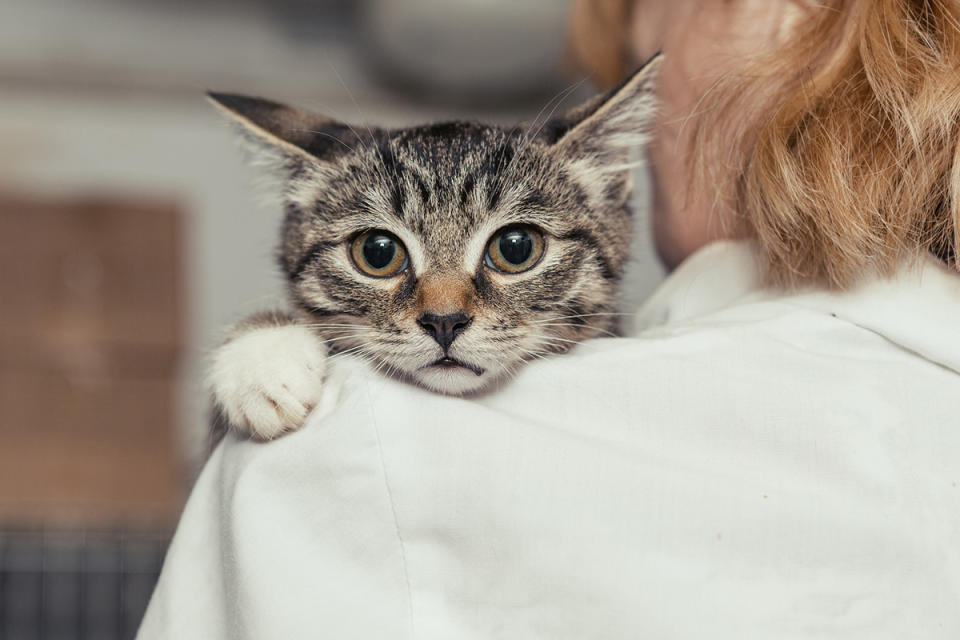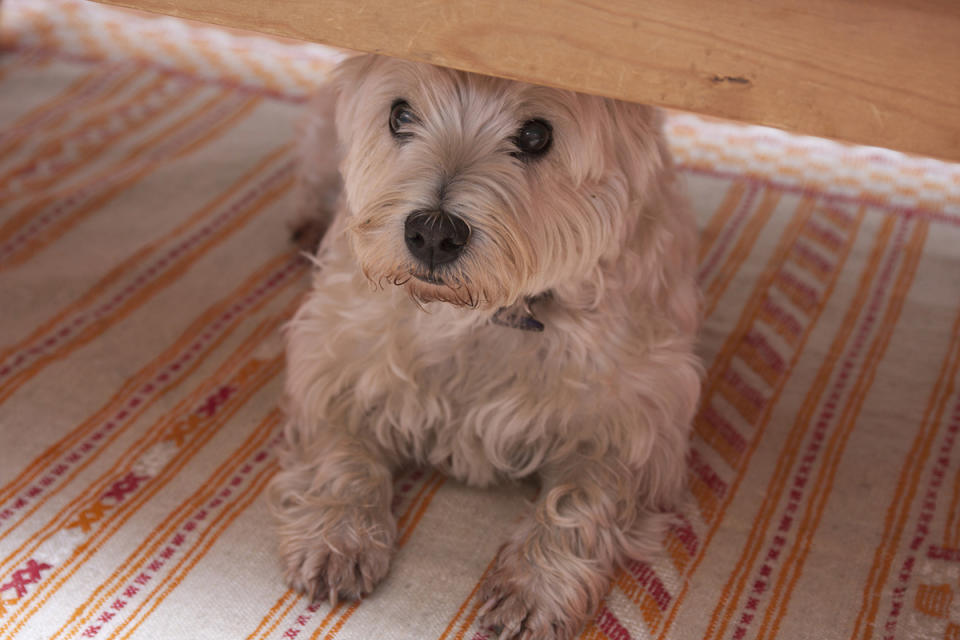Is your pet scared of fireworks? How to keep dogs and cats safe and calm this Canada Day
Firework displays are meant to be fun — but for our four-legged friends they can cause serious stress and potentially fatal health conditions.
Canada Day long weekend plans usually involve friends, family and fireworks. And although a fireworks display provides entertainment for us humans, the same can not be said for our four-legged family members.
Fireworks can cause severe stress for our dogs or cats. According to a recent survey by Rover, a petsitting network, Canadian pet parents consider firework anxiety the number one safety concern for their pets during the summer. Sixty-seven per cent of dog owners and 68 per cent of cat owners say their pets show signs of stress during firework displays.
That anxiety reaches new heights during Canada Day long weekend. In 2022, the Ottawa Humane Society called July 1s their busiest day of the year, due to the influx of runways due to fireworks. Rovers findings support the organization's statement; 30 per cent of Canadian dog owners and 26 per cent of cat owners surveyed said their pet has attempted to run away because of firework anxiety.
Unfortunately, even the best trained companions will flee out of fear — putting them in danger of being struck by a vehicle or for smaller breeds of dogs and cats, becoming prey for wild animals. To help prevent any accidents or mishaps from happening this Canada Day, continue reading to see how you can help keep your furry friends safe.
How can fireworks impact pets during events like Canada Day?
When the sounds of fireworks begin, it's not uncommon for our pets to begin to shake, cry or try to hide. However, sometimes there can be long-lasting health impacts due to firework anxiety that can become life-threatening — especially for cats.

In a 2020 interview with the New York Post, Dr. Natara Loose of The Neighborhood Vet in Brooklyn says male cats are at the biggest risk of potentially deadly health complications brought on by fear of fireworks. The stress of the loud noises can cause so much stress in cats that they become unable to empty their bladders.
“What ends up happening is they get an infection in the bladder and their urethra gets spasms… they get a functional obstruction and that can be fatal for them,” Loose explained.
How can I tell if my pet is experiencing negative physical effects from fireworks?

In the same interview, veterinarian Dr. Brett Levitzke warned pet owners to look out for any signs of urination outside of the litter box, cats running in and out of their litter boxes as well as blood in the urine. Levitzke also advised pet owners to look out for a change in eating behaviour or frequent vomiting, both signs that an obstruction may have occurred.
“If you expose any dog or cat to constant stressful events, it will definitely have some psychological or behavioural long-term effects,” Levitzke said. “Really, the only way to get this anxiety to stop is to get the fireworks to stop.”
How can I protect my pet during fireworks?
If possible, consider leaving your pet at home while you attend any celebrations where there might be fireworks. If you're hosting a gathering with fireworks, consider designating one person to stay inside and help soothe your pet who may be sensitive to loud noises.
Rover suggests securing your pet in a room with their favourite toys or treats to comfort and distract them. Fifty per cent of pet parents report turning on the TV or playing calming music to help drown out any loud noises and soothe their pet, while 36 per cent of people told Rover they forego fireworks altogether to help keep their pets calm and happy.
Update your tags and microchip information
Even if you take every precaution, accidents can happen and sometimes pets can get loose or run away. One thing to do ahead of summer as an extra precaution is to ensure that your pet's information, including your address and phone number, are up-to-date.
Thirty-eight per cent of pet parents admit to not updating their pet's ID tag or microchip after a move, which can make it difficult to become reunited with your pet. Twenty-four per cent said they've never checked the status of their pet's microchip since setting it up. While you may never find yourself in a position where this information is useful, it's a small step that can make the world of difference should an incident occur.
What should I do if my pet has anxiety?
If you know that your pet has severe anxiety whenever there are loud noises or fireworks, consider contacting your vet to talk about medication for your cat or dog. Sedatives, calming treats and sprays or anxiety vests can be beneficial to your pet and ease some of their stress this summer.
Let us know what you think by commenting below and tweeting @YahooStyleCA! Follow us on Twitter and Instagram.



